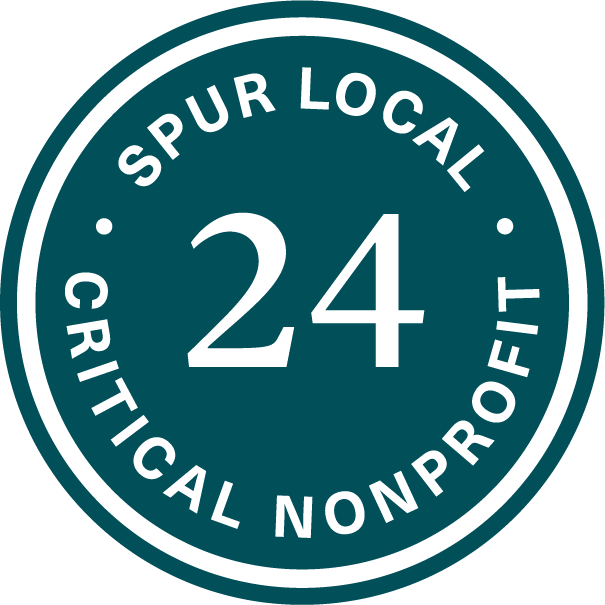- Child Tax Credit payments cannot be counted as income when determining if you or anyone else is eligible for benefits or assistance, or how much you or anyone else can receive, under any federal program or under any state or local program financed in whole or in part with federal funds.
- These programs include Temporary Assistance for Needy Families (TANF), Medicaid, Supplemental Security Income (SSI), Supplemental Nutrition Assistance Program (formerly food stamps), SSDI, WIC, Section 8, or Public Housing. In addition, when determining eligibility, the refund or advance payment cannot be counted as a resource for at least 12 months after you receive it.
- If your qualifying child was alive at any time during 2021 and lived with you for more than half the time in 2021 that the child was alive, then your child is a qualifying child for purposes of the 2021 Child Tax Credit.
- All eligible parents of qualifying children born or welcomed through adoption or foster care in 2021 are also encouraged to claim the Child Tax Credit – worth up to $3,600 per child born in 2021.
- If an individual is born during a taxpayer’s taxable year, the residency and relationship tests will be satisfied if:
- Residency:
- The taxpayer and the individual have the same principal place of abode for more than one-half of the portion of the taxable year during which the individual is alive.
- Relationship:
- The taxpayer and individual have the same principal place of abode for the entire portion of the taxable year during which the individual is alive.
- If an individual is adopted or fostered during a taxpayer’s taxable year, the residency and relationship tests will be satisfied if:
- Residency:
- The child and the taxpayer have the same principal place of abode for more than one-half of the portion of the taxable year or for the entire taxable year following the placement of the child for a non-citizen.
- Prop Reg §1.152-4 Rules for a qualifying child and a qualifying relative
- Residency:
- Residency:
- Your payment total under the program is determined based on your adjusted gross income (from either your 2020 IRS Form 1040, line 11 or if you haven’t filed a 2020 return, the 2019 IRS Form 8b)
- For tax year 2021, the Child Tax Credit amounts were:
- $3,600 for each qualifying child who has not reached age 6 by the end of 2021, or
- $3,000 for each qualifying child aged 6 through 17 at the end of 2021.
- The Child Tax Credit begins to be reduced to $2,000 per child if your modified AGI in 2021 exceeds:
- $150,000 if married and filing a joint return or if filing as a qualifying widow or widower;
- $112,500 if filing as head of household; or
- $75,000 if you are a single filer or are married and filing a separate return.
- For tax year 2021, the Child Tax Credit amounts were:
- The Child Tax Credit won’t begin to be reduced below $2,000 per child until your modified AGI in 2021 exceeds:
- $400,000 if married and filing a joint return; or
- $200,000 for all other filing statuses.
- However, if you receive a refund when you file your 2021 tax return, any remaining Child Tax Credit amounts included in your refund may be subject to offset for tax debts or other federal or state debts you owe. (Will not be applicable after 4/18)
- Your main home can be any location where you regularly live. Your main home may be your house, apartment, mobile home, shelter, temporary lodging, or other location and doesn’t need to be the same physical location throughout the taxable year. You don’t need a permanent address to get these payments. If you are temporarily away from your main home because of illness, education, business, vacation, or military service, you are generally treated as living in your main home.
- Advance Child Tax Credit payments that you received were not reduced for overdue taxes from previous years or other federal or state debts that you owed.
- However, if you receive a refund when you file your 2021 tax return, any remaining Child Tax Credit amounts included in your refund may be subject to offset for tax debts or other federal or state debts you owe.
- Refunds of an overpayment of a tax liability, including the portion to which your Child Tax Credit relates, may be reduced (that is, offset) for overdue taxes from previous years or other federal or state debts that you owe. If you receive a refund after you file your 2021 tax return, any remaining Child Tax Credit amount to which you may be entitled may be a part of the calculation of whether you have an overpayment of your 2021 income tax liability. A refund of this overpayment may be subject to offset for past-due child support. This is different from advance Child Tax Credit payments, which were not reduced (that is, offset) for past-due child support.
- To the extent permitted by state and local laws, your tax refund may be subject to garnishment by your state, local government, and private creditors. This includes garnishment in a court order involving a non-federal party (which can include fines related to a crime, administrative court fees, restitution, and other court-ordered debts).
- This is also true for advance Child Tax Credit payments, which were not exempt from garnishment by non-federal creditors under federal law.
- Under current law, receiving the Child Tax Credit or other federal tax credits that you are eligible for will not affect your immigration status, your ability to get a green card, or your future eligibility for immigration benefits. Use of federal tax credits is not considered for purposes of a “public charge” determination by U.S. Citizenship and Immigration Services.
- Having DACA does not affect your eligibility. If you and your child satisfy all eligibility requirements, you can claim your child for the 2021 Child Tax Credit and were eligible to receive advance Child Tax Credit payments.
- Your eligibility is not affected by your child being a DACA recipient. If your child has a Social Security number (SSN) that is valid for employment, and you and your child satisfy all other eligibility requirements, you are eligible for the Child Tax Credit and were eligible to receive advance Child Tax Credit payments.
- At this time, there is no IRS response directed at this question. For further information, seek assistance from a qualified attorney.
- Only one person can claim the Child Tax Credit per child. If an eligible “child” spent more than half of 2021 with one parent, that parent is the eligible to claim their associated Child Tax Credit.
- General Rule: Either parent can claim the child because the child lived with each parent for more than half the year.
- Exception: If both parents claim the child on separate tax returns, we will provide the credit to the parent with whom the child lived for the greater number of days in 2021. If both parents claim the child on separate tax returns and the child lived with each parent for the same number of days, we will provide the credit to the parent with the higher adjusted gross income (AGI) for the year.
- You will be able to claim the full amount of the Child Tax Credit for your child on your 2021 tax return – even if the other parent received advance Child Tax Credit payments for that child.
- The other parent should have unenrolled from receiving advance Child Tax Credit payments, but their decision will not affect your ability to claim the 2021 Child Tax Credit. The other parent may owe additional tax equal to the total amount of the advance Child Tax Credit payments that they received for your child.



